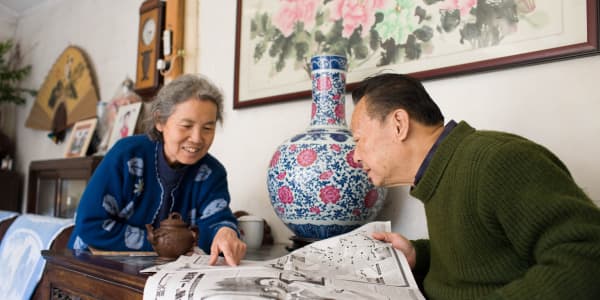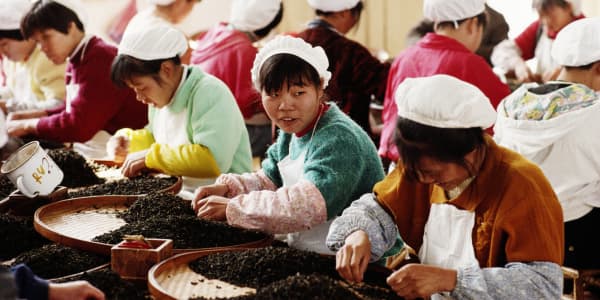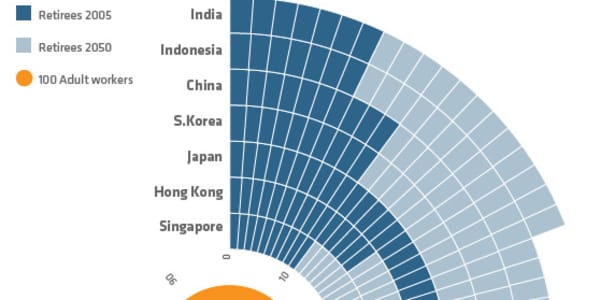Nellie Wee picks up her brand new iPhone 5, slides the bar and starts browsing through photos of her family and images that she took on a recent trip to Marina Bay Sands, Singapore's premier hotel and casino.
The 74-year-old Singaporean also uses the smartphone, her first ever, to play popular online games such as Angry Birds and UnBlockMe. But she says she still prefers to get her news from the newspaper and her friends will text her old Nokia phone to let her know if there's a good film on TV.
Wee is part of a joint initiative between the Singapore-based innovation company Newton Circus and telecom firm Sing Tel, called Project Silverline, which takes smartphones donated by customers and loads them with senior-friendly apps in an attempt to draw more elderly users.
(Read more: Seniors Join Ranks of Social Network Junkies)
While she is part of a growing number of elderly in Asia embracing smartphones, the technology is still broadly struggling to find a connection with the region's booming 'silver economy,' which could be worth a staggering $3 trillion in the Asia-Pacific region by 2017, according to research by consultancy Ageing Asia.
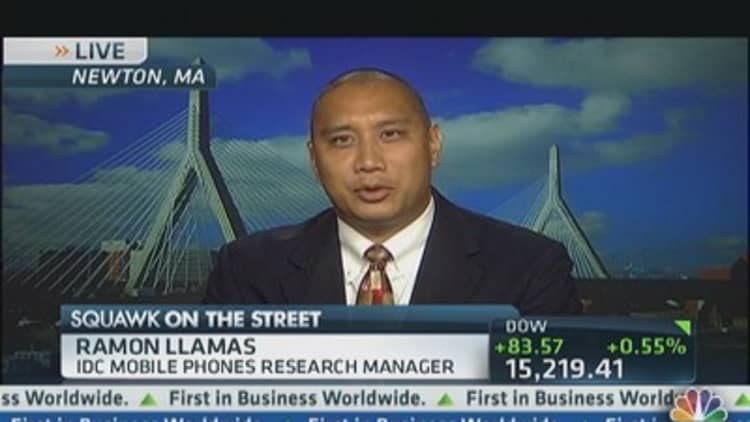
Industry watchers say the problem largely boils down to insufficient understanding of the technology needs of the elderly, alack of innovation and reluctant investors who aren't convinced about the prospects given the divergent aging demographic in Asia.
According to Kim Walker, CEO of Singapore-based Silver Group, a consultancy that helps businesses and governments in Asia understand the needs of older consumers, the engineering and marketing of smartphones are often off the mark.
(Read more: Asia Caught Off Guard by Its Aging Population)
"Most companies get it wrong - they think they've got to create a silver phone or a special 50 credit card," Silver Group's Walker said. "As soon as people are being identified by the phone they use, the tech they use or the cards they use and they're being identified as an old person, they're going to reject it."
Walker said that obstacles were acknowledged by the likes of Apple, which designed more 'age friendly' products – such as the iPad– and then marketed beyond the 'youth' demographic, to consumers aged from "one to 100".
"It's a huge market [in Asia] but you can get it spectacularly wrong if you don't understand the psychology of these people," he said.
Businesses coy on aging
By most accounts, companies producing gadgets focused on senior consumers have more difficulty convincing tech investors who remain uncertain about business opportunities relating to an aging population.
(Read more: The aging in Asia face a new decade like no other)
Brisbane-based Hugh Geiger, CEO of Ollo Mobile, a firm which specializes in wearable 3G devices for the elderly and children,said he's had advanced discussions with SingTel about possibly bringing Ollo Mobile to Singapore as well as a host of other network providers in Southeast Asia, but the response has been mixed.
"There's this perception that the elderly are poor and less engaged… that's certainly the feedback we've had in Southeast Asia,"he said.
According to Shiv Putcha, principal analyst for Ovum Telecoms, potential investors question the differences in purchasing power of the elderly across the region.
"At one end you've got countries like Japan and Australia which are rapidly aging, and then you've got the emerging markets which are growing younger by the day," Putcha said.
"There's a tremendous variety across the region in people's ability to pay," he added.
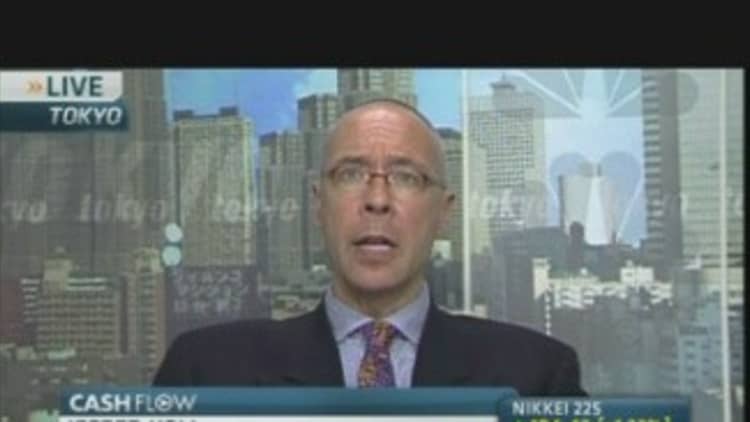
Learning from Japan?
Still, there are encouraging signs from Japan,where Fujitsu's Raku Raku smartphone, which is catered for the elderly, is enjoying brisk sales.
(Read more: Can Japan's Elderly Become Its Growth Engine?)
The Raku Raku – which means "comfortable"or "easy" in Japanese – comes with large app icons and text, and can even slow down a caller's voice so that they can be understood better.
Fujitsu expects its annual mobile phone shipments to rise to 10 million units in fiscal 2014, a milestone considering the company sold a total of 20 million units between 2001 and 2011.
Silver Group's Walker said the phone's success has been built on its partnership with Japan's largest mobile carrier, NTT Docomo,as well as its original design failures.
"They understood the physiological needs of older people; they understood that the ability to filter out noise was critical,particularly if people are using phones in streets," Walker said.
The phone has also gone through several incarnations from its original clunky design – which immediately signaled that this was an old person's phone and hence rejected by users – to its current sleek look.
(Read more: World's first ethically sourced smartphone unveiled)
"The critical learning from the Raku Raku phone was not that it was successful but that it was a failure that transformed itself and became successful," he added.
Signs indicate that phone makers are becoming more attuned to the benefits of making technology more accessible for seniors. Samsung Electronics, for example, launched its Galaxy S4 earlier this year it came with an 'Easy Mode' which simplifies the home screen, icons and fonts.
While not all seniors are avid smartphone and tablet users, their interest in exploring new technology can't be underestimated either.
Project Silverline noticed that some seniors over 80 years old have an interest in bypassing 'age-friendly' apps and deploying the native iPhone apps, such as voice recognition searches in YouTube.
"We're on the cusp of this change," said Andrew Dowling, the Sydney-based CEO of Tapestry, a social media platform for seniors, "where governments and the investor community recognize that there's a massive need here. Any time there's a need it opens up opportunities."


